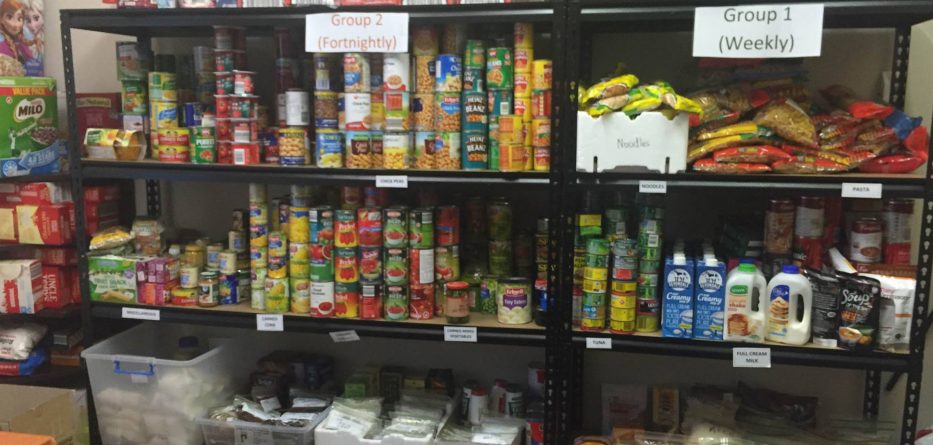Jesuit Refugee Service (JRS) Australia is proud to announce their participation in a joint national research project which explores the impact of the COVID-19 pandemic on marginalised communities in Australia.
As part of the Australian Catholic University’s (ACU) new and innovative Stakeholder Engaged Scholarship Unit (SESU), JRS Australia along with St Vincent de Paul NSW, Catholic Social Services Victoria, St Mary’s House of Welcome, and Lord Somers Camp and Powerhouse are working together to understand how the COVID-19 pandemic has impacted community members in particularly vulnerable situations and community sector services.
Researchers from the university with work with staff, volunteers, and service beneficiaries from all five organisations to examine the effects of last year’s lockdowns for temporary visa holders, people who experienced long-term unemployment, and people who had access to support for the first time.
The project will also look at what improvements can be made for people who had access to support and the effects on their mental health and wellbeing. The project will also highlight ways in which the community sector can be prepared to respond to future need following the roll back of federal government emergency relief measures.
To find out more about the project, read the Australian Catholic University Media Release here and below.
Responding to the needs of those experiencing the most disadvantage during a lockdown
Five non-profit organisations are partnering with Australian Catholic University (ACU), through its Stakeholder Engaged Scholarship Unit, to explore the impact of COVID-19 for the community sector and the people it supports.
The community sector is keen to learn from the COVID-19 lockdowns to shape how services can respond to the needs of those experiencing the most disadvantage.
Senior Lecturer in Youth Work and International Development at ACU Dr Jen Couch said that at the peak of Australia’s COVID-19 crisis, some agencies were forced to shut their doors and turn clients away, unable to operate under strict government restrictions.
“Others offered a vital lifeline in a time where they experienced unprecedented spikes in demand for support from clients, such as refugees and people seeking asylum, who were locked out of employment and ineligible for government support”, Dr Couch said.
“And yet some agencies experienced less demand for their services while their regular cohorts benefited from the government’s Job Seeker scheme. Now wound back, the impact of the government’s withdrawal of temporary welfare remains to be fully seen.”
One part of the project sees ACU support Jesuit Refugee Service Australia, St Vincent de Paul Society NSW, and Lord Somers Camp and Power House to look back on last year’s lockdowns for temporary visa holders, people who were long-term unemployed and people who had to access support for the first time.
Manager of Policy and Advocacy at the St Vincent de Paul Society NSW Ms Rhiannon Cook said that together, our organisations, want to know whether and how people were able to access the services they needed.
“What could have improved their experience? Did the level of support they received across the board affect their mental health or wellbeing?” Ms Cook asked.
The other part of the project turns to the future: Catholic Social Services Victoria, St Mary’s House of Welcome and ACU seek to ensure the sector is prepared to respond to future need.
Executive Director of Catholic Social Services Victoria Mr Joshua Lourensz said the social services sector is gearing itself for significant increases in demand following the roll back of federal government emergency relief measures.
“We are asking what will unemployment and under-employment look like for different cohorts of people in our communities? What impact will the COVID-19 crisis continue to have on refugees and people seeking asylum”, Mr Lourensz said.
“We are also exploring what the demand for housing assistance, domestic violence services, mental health providers, shelter, food, clothing and other essentials will be if we are to help people in need.”
Chief Executive Officer of St Mary’s House of Welcome Ms Robina Bradley is at the front line working with people affected by COVID-19.
“We have seen an increase over the last 12-months of the impact of COVID-19 on people’s mental health, wellbeing and income stress”, Ms Bradley said.
“People are presenting for support for food and emergency hampers. There appears to be a new and emerging group of people experiencing need and unsure where to go. This includes people newly unemployed, asylum seekers, international students and people who have never accessed support through charities and welfare agencies.”
The partners in this work intend to share their findings with other social service organisations so the sector at large can benefit.
ACU’s Stakeholder Engaged Scholarship Unit invites organisations supporting people who experience disadvantage or marginalisation to propose projects that enhance their services or address systemic or ‘big’ issues in the community sector.
Questions should be forwarded to sesu@acu.edu.au.
With thanks to ACU and published with collaboration from Jesuit Refugee Service Australia.
You can help refugees and asylum seekers in our Diocese through our Diocesan Food Drive Roster which donates desperately needed food supplies to the House of Welcome and Jesuit Refugee Service.
This article highlights a story from the “Diocesan Journey… Walking with Refugees and People Seeking Protection”. Click here to learn more about this initiative and to follow our 14-weeks campaign from Refugee Week to World Day of Migrants and Refugees.








